Silene capensis - Silene undulata
| Botanical Name | Silene capensis - Silene undulata |
|||||||||||
| Family | Caryophyllaceae - The Pink or Carnation family. |
|||||||||||
| Pronunciation | sy-LEE-nee ka-PEN-sis |
|||||||||||
| Common Name(s) |
English: Gunpowder plant; Wild Tobacco; African dream root
Afrikaans: Wildetabak ; Wildetwak
IsiXhosa: ubulawu obumhlope; unozitholana; iinkomo yentaba; icham
Sesotho: Lithotoana ; Molokoloko
|
|||||||||||
| Plant Group |
|
|||||||||||
| Plant Size |
|
|||||||||||
| Position |
|
|||||||||||
| General Information |
|
|||||||||||
| Specific Information | A delightful sight in the veld on dull days and evenings, Silene capensis appears messy in a garden bed or formal situation. Growth habit is lax and the many dead flower stems need to be cut away at the end of the flowering season. They seed very freely and can easily become invasive if not checked. The small grey seeds, which apparently look like gunpowder, are held in an urn-like capsule which opens at the top when ripe, the seeds being shaken out as the long flower stems blow in the wind. According to reports from growers in the USA, this herb is tolerant of extreme heat (+40C) and, extreme cold and even snow. They are very fragrant, particularly in the evening. |
|||||||||||
| Ad Break | ||||||||||||
| Flowers | ||||||||||||
| Description | ten petals, fused at the base in pairs, about 5 cm in diameter on the end of a stem up to 60 cm long |
|||||||||||
| Season |
|
|||||||||||
| Colour |
|
|||||||||||
| Growth Rate |
|
|||||||||||
| Plant Uses |
|
|||||||||||
| Distribution and Habitat | in all provinces of South Africa, in river valleys and shrubby grasslands |
|||||||||||
| Planting Suggestions | Easily grown but must be well-drained. Plant seeds in autumn or spring in a seed box or open ground and keep slightly moist. When the plantlets are about 5 cm tall they can be planted into position or thinned out. Despite a number of references stating that this is a water loving plant, I have found it growing successfully in very dry situations in the veld. Add a little compost if the soil is very sandy. |
|||||||||||
| Medicinal Uses | Silene capensis is a sacred herb used by the Xhosa tribe in South Africa as an oneirogenic agent - a substance that causes lucid, vivid dreams, noticeably in color and vibrancy. The root is traditionally used to induce vivid lucid dreams during the initiation process of a shaman. Reputedly, a small amount of the root of this species is pulverised with water to produce a white froth. This froth is then sucked off and swallowed. The user's dreams for the following several nights are said to be more vivid and memorable than usual. It is regarded across the world as one of the most powerful of the dream enhancing ethnobotanical plants. |
|||||||||||
| Ad Break | ||||||||||||


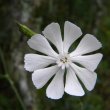
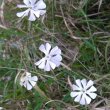
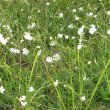
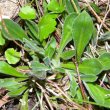
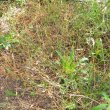


Comments
Silene capensis seed
Good Day
I see you are situated in the eastern cape.
I am from the Botanical Garden in Stellenbosh, and would like to know if you can help us with one of our projects for the Botanical garden.
We would like to develop an interesting selection of a few medicinal plants indigenous to South Africa. How can we get hold of four to five interesting plant species like Silene capensis. If we can get hold of their seed it would be fine.
We would appreciate your help or advice.
Thank you.
Marga den Hartigh
Medicinal Indigenous Plants
Hi Marga
I've made up a list of a few of the medicinal plants that come to mind, some of which are quite well known, but there are many more. I have not included trees or large shrubs.
Lessertia frutescens (Cancer bush); Pelargonium reniforme and sidoides; Bulbine Latifolia (Rooi rabbas); Geranium incanum (Vroue tee); Lantana rugosa (Bird's Brandy); Hypoxis hemerocallidea (Yellow star,'African potato'); Clematis brachiata (Traveller's joy); Artemesia afra (Wilde als); Eriocephalus species (Wild rosemary); Rhoissus tomentosa and tridentata (Wild grape); Protea repens (Sugar bush); Lobostemon fruticosus (agtdaggeneesbos)
Others: Helichrysum species, Buchu species, Bulbine species, Agapanthus, Pelargonium species.
I hope this list will be of some help. You can also get information from www.plantzafrica.com and a book by Ben-Erik van Wyk and Nigel Gericke called People's Plants.
I can supply seeds or cuttings of some of the above, including those of Silene capensis.
Regards
Lorraine
silene capensis
I bought seeds on ebay, planted 6 seeds, after 40 days, I have 3 seedings finally came up. 2 are the same 1 is distinctly different. could you send me your address, so that I may send you a photo and hopefully you might identify which is the silene capensis
Silene seedlings
Hi Jim
I'll do my best. Send photos to kumbulanursery@gmail.com.
Kind regards
Lorraine
Silene dormancy?
Hello
I am growing silene capensis in the U.S. My climate is temperate. I would like to know how long of a winter dormancy(?) period the plant needs or wants. I grow it in a pot which I now have inside for the winter months.
I have a warm location with supplemental lighting where I have other plants growing. Our winters here last about four months. Will silene be ok inside for this long of a winter period? I can move it to the warm lighted location if needed.
The plant is looking well. I just gave it bit of water today, the first water in about a month. It's location is cool (about 45 degrees F) and I am keeping it dry for winter.
Thank You
Joe
Silene undulata: overwintering
Hi Joe
It would be useful to know your specific area and the average minimum/maximum temperatures you usually experience annually, as there is a wide variation within the temperate zone. Do you have snow or frost?
Silene undulata grows in most areas across South Africa from semi-desert to high rainfall areas and frosty conditions, and even in winter rainfall areas. Bear in mind that this more 'weed' than delicate garden plant. It can take a lot of punishment.
Rather than dormancy, I would use the phrase 'period of rest' to best describe the plant's needs in winter. It should stay green and not lose its leaves, but active growth will slow down. A little water, average light and a bit of warmth should keep your plant healthy for as long as your winters persist. A constant temperature of 45 degrees F (7.2 degrees C) may be a little cool as this does not allow for the daily warming it would normally receive.
Hope this helps.
Kind regards
Lorraine
silene
I started a plant , on Vancouver island, Canada, in August. It is in a pot. It was outside until October, then brought it into sit on window ledge above kitchen sink, south facing. My daughter just showed it to me on Skype and it is thriving , leaves look to be at least 8 inches. I also planted one in a pot , down here in Arizona, in November, stays out side has about a dozen leaves, largest maybe .5 inches. I think it might have had a touch of frost. When it only had about 6 leaves I noticed it was yellowing , thought I might be over watering it, so quit and it rebounded. I think that might have set it back as it doesn't seem to be growing as fast as the one did at home. Another thing I noticed , the one in Canada, in the fall, during the day the leaves would spread out wide as thought to catch the sunlight, while at night they would stand up erect. Down here they never seem to spread out, always erect. Although the leaves aren't very big yet so that may happen when they are larger. I had very poor success in sprouting, started 8 seeds 3 times. 2 times 1 sprouted, once none. So 2 out of 24 , not a high success rate. None of those seeds came from this site, all bought on Ebay, USA sellers.
Growing It In America
Hi there, I'm interested in growing this plant here in America, I'm in California, and I just wanted to know how I could get my hands on the seeds to grow? And what the ideal conditions are for it? Thanks!
Seed availability U.S.A.
Hi Laura
Google: 'silene capensis buy seed U.S.A.'
As to the ideal conditions, read the Planting Suggestions above as well as the comments made by other readers. As California has a temperate climate, the plant should thrive.
Kind regards
Lorraine
pollination
Do I need two silene capensis plants in flower to pollinate, or will one self pollinate?
Silene undulata - capensis pollination
Hi Jim
Nice to hear from you. I am not sure if a single flower on one plant will self-pollinate, but if the plant has a couple or more flowers open at a time, they are almost certain to be cross-pollinated by moths that visit the flowers at night.
Kind regards
Lorraine
Silene Capensis Garden
I have a Silene Capensis Garden; its 3 years old; i have harvested about 500,000 seeds from it. so yeah, thats a lot in case anyone needs any. lets talk; does anyone have any Silene Capensis they want to share or trade or compare with mine?
Taylor - 970-390-6919
Discuss this plant
Share knowledge, ask a question or give an experience.